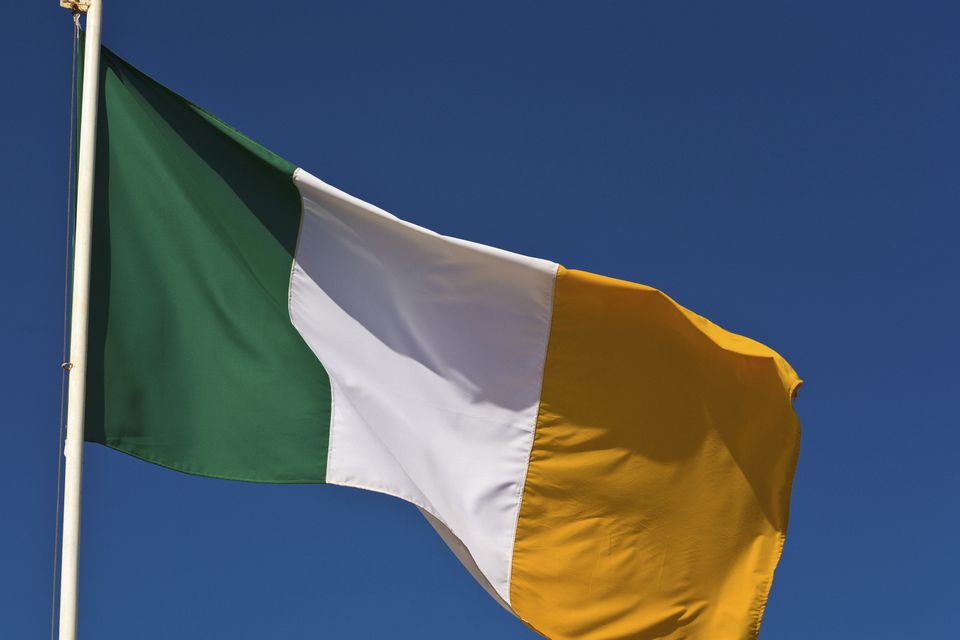by Sabrina Sweeney
I was listening to Dublin Labour councillor Darragh Moriarty on local radio earlier this week, talking about tricolours that have appeared on lampposts around the city.
Residents in the north inner city have written to the council asking for the flags to be removed because they say they’re an attempt by a minority to make a political statement that’s not representative of those who live there.
Dublin City Council says it’s a serious and sensitive issue and plans to liaise with stakeholders and the Gardaí before deciding on the best way to proceed, in the absence of explicit rules around the flying of the flag in the city.
According to Cllr Moriarty, anti-immigrant groups are behind the displays, tied to a campaign in England called “Operation Raise the Colours, which has links to the far-right.”
The response from radio listeners here was striking, with many quick to dismiss and brand him too left-wing or out of touch.
From what I heard from the reactions, there are two important points to consider in conversations around flags when their erection is linked to immigration issues. First, there’s undeniable discontent about immigration, or at least about how it’s being managed. Some people feel their lives are harder because school places, housing, or GP appointments are stretched, and it’s easy to pin the blame on newcomers.
There are also frustrations about asylum seekers being moved into communities without consultation, and anxieties about safety on local streets, with some parents saying they feel less confident letting their children walk alone. These fears may not always be grounded in fact, but they are real in how they’re experienced.
The second is that it is naïve to underestimate how quickly national symbols, like our flag, can be used to claim space, to divide and exclude and people in Donegal should understand this better than most.
Travel a few miles into the North, it becomes clear that flags can easily become warning signs, there to tell you who belongs and who doesn’t.
In Belfast right now, Catholic families in the Annalee Street area have been driven from their homes in a campaign of violence and intimidation, with the UDA being blamed. An image of the street shows Union Jacks flying above boarded-up houses, with just one Catholic family holding on, for now.
No-one is under any illusion about what those flags mean. They are there to mark territory, to let neighbours know they are not wanted.
Research from Queen’s University in Belfast has tracked flag displays over years and found that while flags are sometimes raised for commemorations or anniversaries, many are left to rot long after, becoming a permanent marker of control.
In 2024, more than a third of respondents in the Northern Ireland Life & Times survey said they felt intimidated by loyalist murals, kerb paintings and flags.
More than half of Catholic respondents said the same. Republican displays also cause intimidation, but the point stands: once a flag is used to police space, it stops being welcome.
That’s why dismissive reactions to Cllr Moriarty’s concerns are an issue. We might think the tricolour is safe from being used for harm. But if groups with an exclusionary agenda start to use it as their calling card, then it will begin to mean something else.
Symbols are powerful. Once they’re tainted, they are hard to reclaim. Of course, not every tricolour pinned to a wall or raised in a garden should be seen with suspicion. Pride in place, in team, or in identity is valid and valuable. But context matters. We need to ask ourselves: is this proud patriotism, or is it sliding into weaponised nationalism?
Donegal has been a close witness to territorial disputes in Northern Ireland; people have seen how markings divide streets, harden attitudes and make people feel unwelcome.
They’ve also experienced the relief of living in towns and villages where public spaces are open, unmarked, and welcoming. That contrast tells us everything we need to know about what’s at stake.
The line between patriotism and weaponisation is a thin one but the choice lies with us. We can brush off concerns with a casual “catch yourself on,” or we can take the warnings seriously and protect the integrity of the tricolour before it gets dragged into a battle it was never meant to fight.










